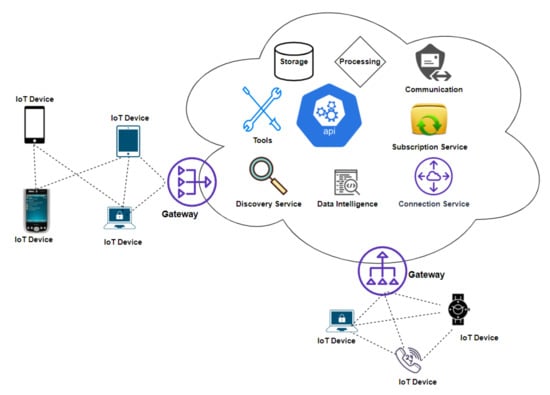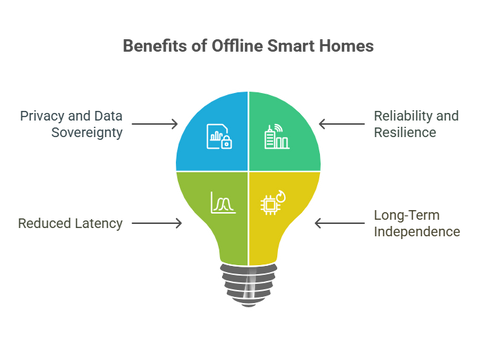Smart homes are changing how we live. They bring convenience to daily life. But smart homes need good technology to work well. One key part of this technology is local processing.

Credit: www.mdpi.com
What is Local Processing?
Local processing happens within your home devices. It means data is handled locally, not sent to the cloud. For example, your smart speaker can understand commands without needing the internet.
Why is Offline Functionality Important?
Offline functionality means your smart home can work without the internet. It ensures your devices keep working even during network outages. This makes your home more reliable.
Key Benefits of Local Processing
Local processing offers many advantages. These include improved reliability, better security, and faster responses.
1. Reliability
Internet outages can happen anytime. Without local processing, smart devices may stop working. Local processing ensures your devices still function.
2. Security
Local processing keeps your data within your home. This reduces the risk of hacking. It protects your privacy from online threats.
3. Speed
Local processing is faster. It avoids delays caused by sending data to the cloud. This is helpful for tasks like turning on lights or controlling temperature.
Examples of Local Processing in Smart Homes
Many smart home devices use local processing. Below are some common examples:
- Smart Thermostats: Adjust temperature based on local data.
- Smart Locks: Unlock doors using stored codes offline.
- Smart Cameras: Record footage locally without cloud storage.
- Motion Sensors: Detect movement and trigger actions instantly.
How Local Processing Helps During Internet Issues
Imagine your internet goes down. Without local processing, your smart lights might not work. Your security cameras might stop recording. Local processing solves these problems. It keeps your home running smoothly even offline.

Credit: www.gridx.ai
Local Processing and Energy Efficiency
Local processing also helps save energy. Devices process data faster and use less power. For example, a smart thermostat can adjust temperature efficiently. This reduces energy costs over time.
Privacy Concerns with Smart Homes
Many people worry about privacy in smart homes. Sending data to the cloud increases risks. Local processing reduces these risks. Your data stays within your home. This provides peace of mind.
Smart Home Devices That Use Local Processing
| Device | Function |
|---|---|
| Smart Speakers | Understand voice commands locally. |
| Smart Lights | Turn on/off without internet. |
| Smart Security Systems | Operate alarms and cameras offline. |
| Smart Thermostats | Adjust temperature without cloud help. |
Challenges of Local Processing
Local processing is not perfect. Devices need strong hardware for local processing. Some tasks still need internet, like software updates. However, the benefits outweigh these challenges.
Future of Local Processing in Smart Homes
The future looks bright for local processing. Companies are investing in better technology. More devices will work offline. This will make smart homes more reliable and secure.
Frequently Asked Questions
What Is Local Processing In Smart Homes?
Local processing means smart devices handle data on-site without relying on cloud servers. It ensures faster and safer operations.
Why Is Offline Functionality Important For Smart Homes?
Offline functionality allows smart devices to work during internet outages. It ensures reliability and uninterrupted service.
How Does Local Processing Improve Smart Home Security?
Local processing keeps data within the home. This reduces the risk of breaches and unauthorized access.
Can Smart Home Devices Work Without Wi-fi?
Yes, devices with local processing can function offline. They don’t rely solely on internet connectivity.
Conclusion
Local processing plays a key role in smart homes. It ensures offline functionality, improves security, and speeds up tasks. It also reduces privacy risks and saves energy. As technology advances, local processing will become more important. Smart homes will be safer, faster, and more reliable.

